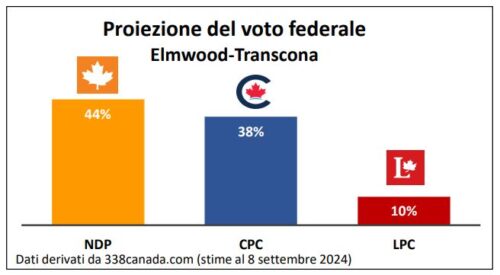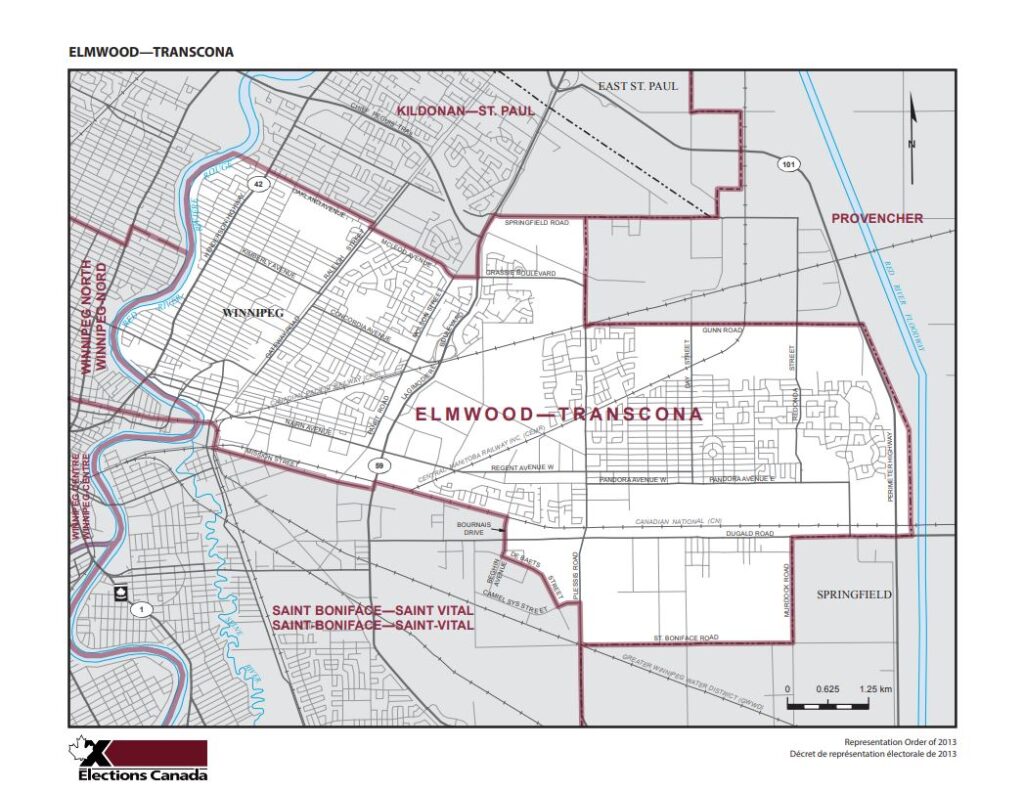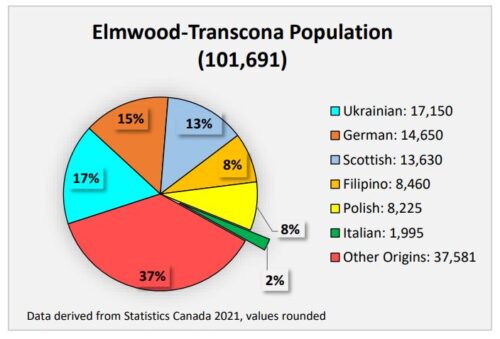Elmwood-Transcona by-election (2) no upset expected
TORONTO – Occasionally, elections make a difference. In Elmwood -Transcona, Winnipeg, the adveb should be “rarely”. Since its formation in 1980, forty-four years ago, it has never elected a Liberal. It is unlikely to break new ground Tuesday, if the chart derived from 338Canada reflects popular voting intentions in the district for tomorrow.
From a political perspective, one can read almost anything into the outcome but we will all ‘miss the mark’ – the NDP is the only party with anything at stake. As of the closing of the advance polls, circa 10,000 electors (14% of eligible voters) had already caste their ballot). For the sake of comparison, In La Salle-Emard-Verdun, about 2,753 km by road to the east in Montreal, 11,000 have cast an early ballot, and four political parties have a chance at victory.
Winnipeg is as close to the geographical centre of Canada as one can imagine, in a province, Manitoba (founded in 1870), which from the ‘get go’ germinated ‘political activism’. Historians argue that such activism had its genesis in Central Canada’s attitude to the earliest citizens, the Aboriginal, Indigenous and Metis peoples. The Riel Rebellion(s), and later the hanging of its leader in 1885, is for many, still the quintessential expression of Western Canada’s right to self determination.
In 1919, the Winnipeg General Strike stamped a labour-oriented character on the politics of the city and the province. But Winnipeg grew, in large measure to the country’s transportation (railways) policy and the Wheat Board for international distribution of an invaluable resource – wheat. People from all parts of the world (initially Europe) were recruited to capitalize on the wealth potential (see pie chart below), Elwood-Transcona is a microcosm of that phenomenon (see Elections Canada update of demographic composition with total numbers in brackets) French (9,715), Quebecois (35), Greek(195), Muslim (265), Indian (3,905), African (1,190).
The economic dynamics changed with the enactment of the Free Trade Agreement and the dismantling of the Wheat Board – both under Conservative administrations in Ottawa. Only the NDP were able to capitalize politically. People kept coming. The constituency remains a fiefdom with allegiance to one Party.
Italians had already made their way to this land of milk and honey. Their ingenuity, adaptability and willingness to work with local populations on an equal footing made them welcome. The city is part of the Consulate-General general of Toronto’s jurisdiction. It still has a very dynamic Sons of Italy club. Their politics remain Manitoba-Canada oriented.
The vacancy occurred because Daniel Blaikie, its NDP Member of Parliament, resigned his $200,000.00 per annum job to take on the task of advisor to the Premier of Manitoba.
Graphics and research by Priscilla Pajdo, NEPMCC Internship 2023-24





